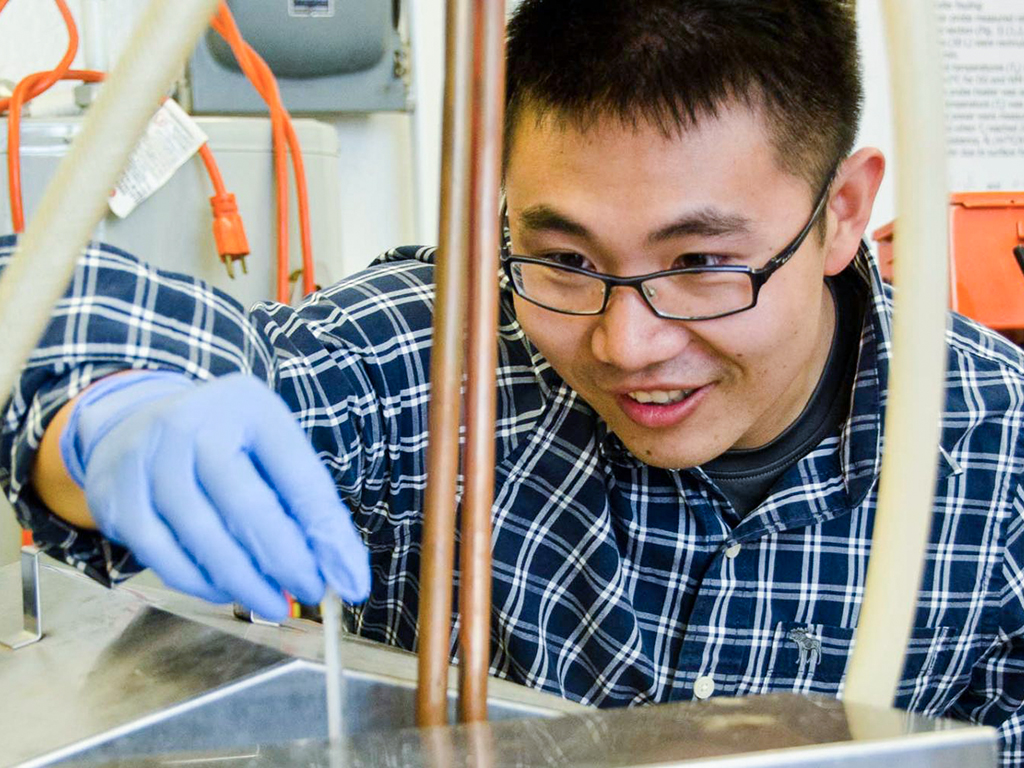This M.S. program provides two options:
- Thesis Option - The thesis-based M.S. degree program is a research-oriented program of study that is usually completed in two years. Students complete at least 24 hours of coursework and 8 hours of thesis research. 18 to 24 months beyond the B.S. degree are required.
- Non-thesis Option - This non-thesis option requires 36 hours of coursework and documentation of a significant research experience with a significant writing experience.


